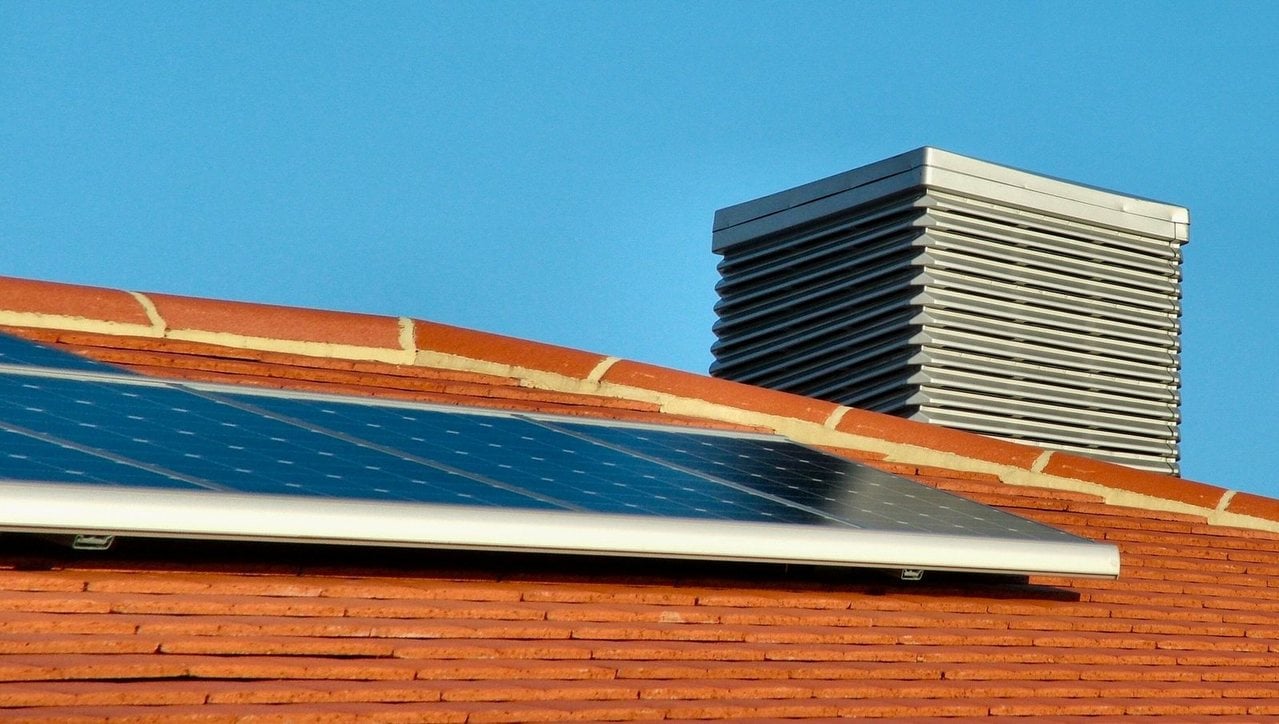
Here is a summary of the pros and cons of installing solar photovoltaic panels.
Pros:
Cons:
Let’s break these down in a little more detail to see what these solar pros and cons would mean for you.
Energy is lost in transmission - for example, around 8% may be wasted on the route from a power station to your home. So the closer the generator to the source where the energy is used the better, another bonus for solar panels on your roof.
Generating your own power gives you more independence from your electricity supplier. A typical household with solar and battery storage can produce up to 80% of their annual demand. So you’ll be much more insulated from regular price hikes. Solar plus battery storage can also provide backup in a power cut.
As a country we rely on imported energy - in 2019, imports made up 35% of our total needs. Installing solar PV helps the UK as a whole become more energy independent, rather than beholden to the global market.
Solar panels are an investment. But factoring in their lifetime cost and returns, does this become a pro or a con?
Let’s see an example for an average domestic solar system. With a size of 4kWp, it costs around £6,500 (depending on location, type of property, ease of install etc) and is expected to produce an average of around 3,500kWh per year for 25 years. So 88,000kWh over the system life. Even if £1,800 is spent on maintenance over the life (including a replacement inverter at some stage), the all-in cost is 9p per kWh - way below the cost of domestic grid electricity, which is around 22.36p per kWh (and likely to rise year-on-year).
One of the main concerns people have about solar energy is the unreliability of its performance depending on weather and season. Do solar panels work when it’s overcast or in winter? Yes! Solar panels are powered by light not heat, specifically daylight - and we still get daylight even when it’s cloudy or wintry.
Peak generation is typically between 11am and 4pm (depending on roof angle, direction, shading etc). Of course, in UK summers the sun rises earlier and sets later, so the hours of daylight to power solar panels are extended. Consequently the system can produce twice as much electricity in summer than in winter:
Cloud cover can also reduce output. Light cloud cover can cause reductions of up to 50%, with heavy cover even higher. Interestingly, overcast weather can also cause brief surges of power when the sun emerges between clouds, as the panels receive both direct sunlight and that reflected by the clouds. While there are daily variations in weather, what’s important is the output over a whole year.
It’s also worth noting that one of the benefits for solar in the UK is we have decent daylight alongside a high level of wind. This wind cools the panels, making them perform more effectively. So despite not being as sunny as countries along the Mediterranean, we can expect to generate similar levels from solar as a country like Germany.
As we’ve seen, solar output does vary hour by hour and day by day, depending on weather and season. But there is a way to rely on solar as a more consistent power source, which is particularly useful if you’re out of the house when generation is at its peak.
Battery storage - big lithium ion batteries like the Tesla Powerwall - soak up generated electricity, which can then be discharged when needed. On average, we see homeowners can meet 70-80% of their annual electricity demand when adding battery storage to solar PV.
Many of the solar PV pros and cons depend on your particular location and the system your roof can accommodate. So we’ve built a solar calculator that you can use to see if solar panels are right for you. Give it a try now!
Copyright © Spirit Energy 2026 · info@spiritenergy.co.uk · 0118 951 4490
Jobs and Careers
Interested in joining the Spirit team? Email jobs@spiritenergy.co.uk
Spirit House, 25 Albury Close, Reading, RG30 1BD
(Location formerly known as 44 Portman Road, Reading, RG30 1EA)
Spirit Energy is the trading name of Spirit Solar Ltd · UK Company Number 07138647
Although care is taken to ensure that the information on our website (www.spiritenergy.co.uk) and any guides, calculators or checklists provided by us, electronically or otherwise, are accurate and up-to-date, we cannot accept any responsibility for mistakes or omissions. We enter into no express or implied conditions, warranties, terms or representations regarding the quality, accuracy or completeness of the information. We exclude to the extent lawfully permitted all liability for loss or damage, whether direct, indirect or consequential arising out of your use of our website or any guides, calculators or checklists provided by us, or from any information or omission contained in our website or any guides, calculators or checklists provided by us.